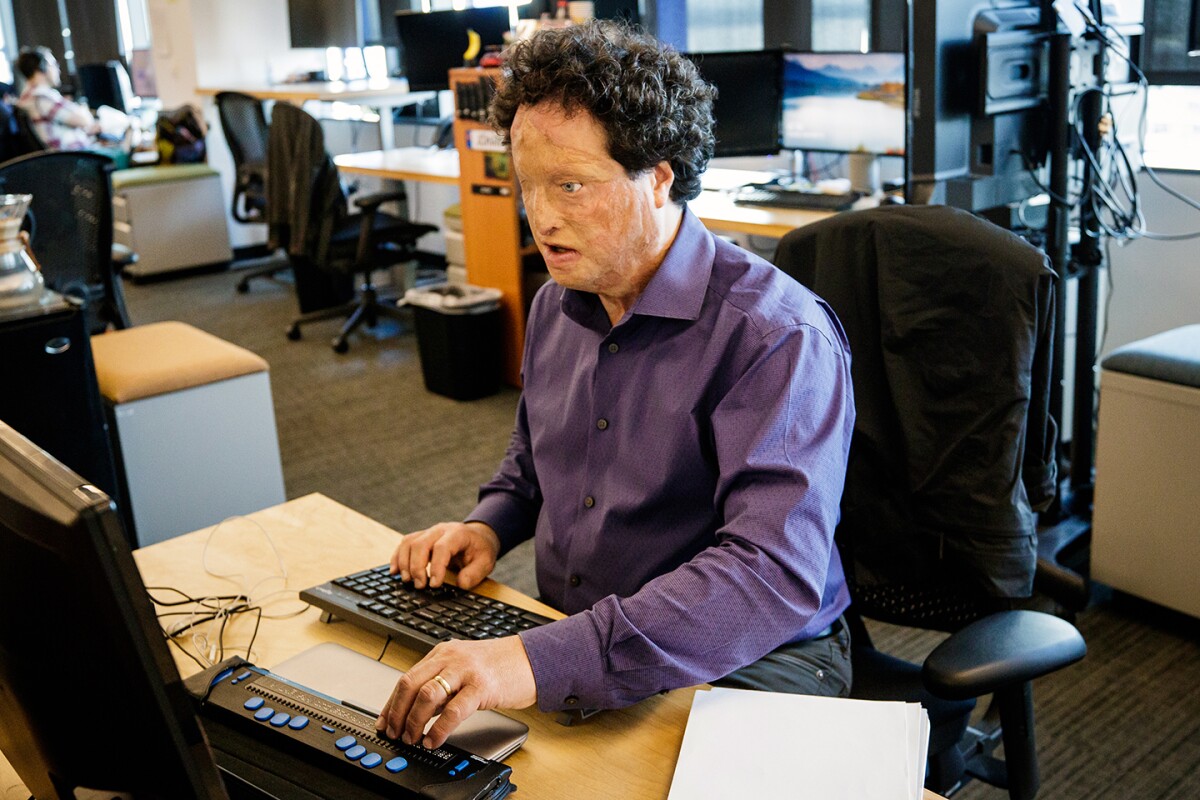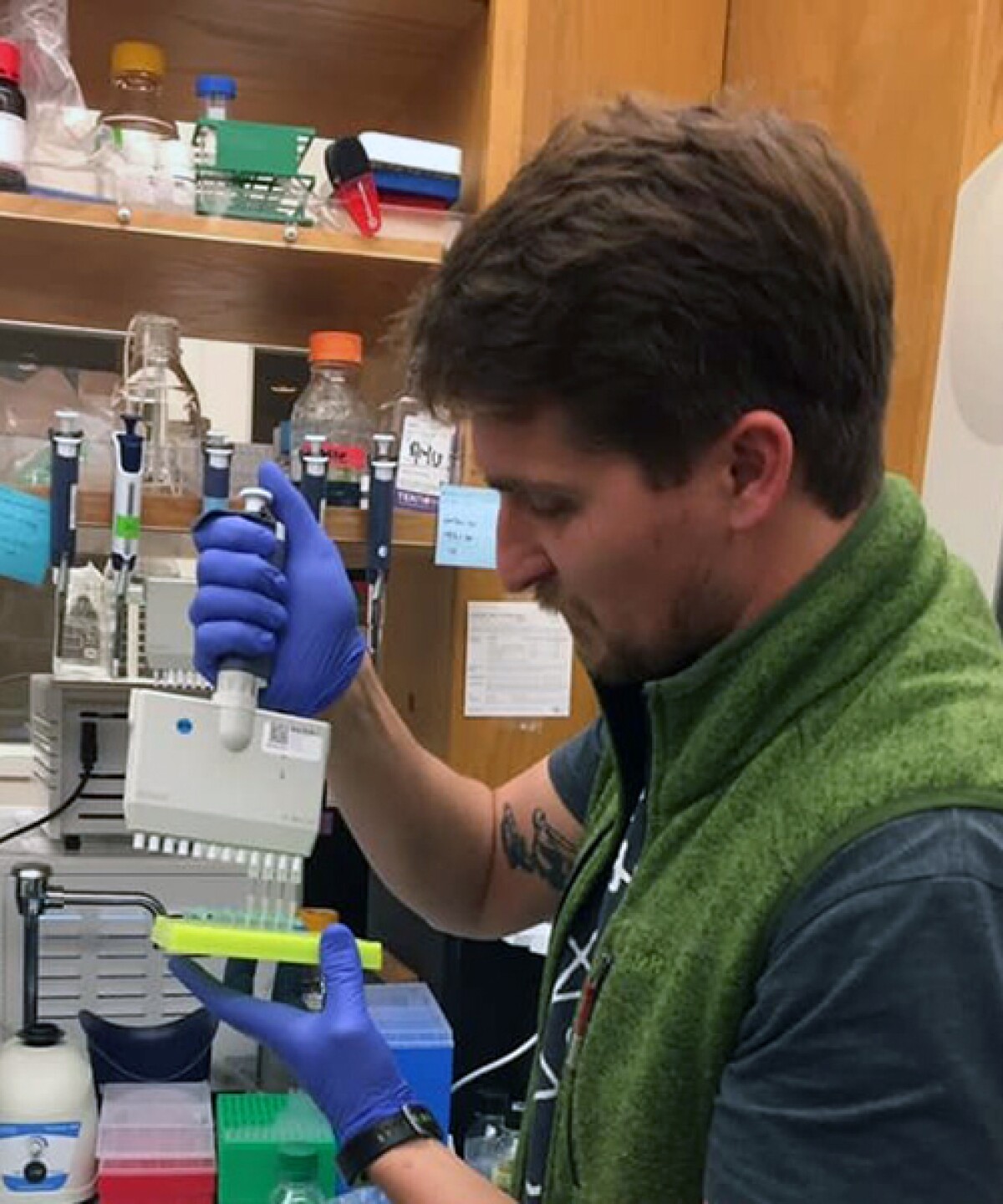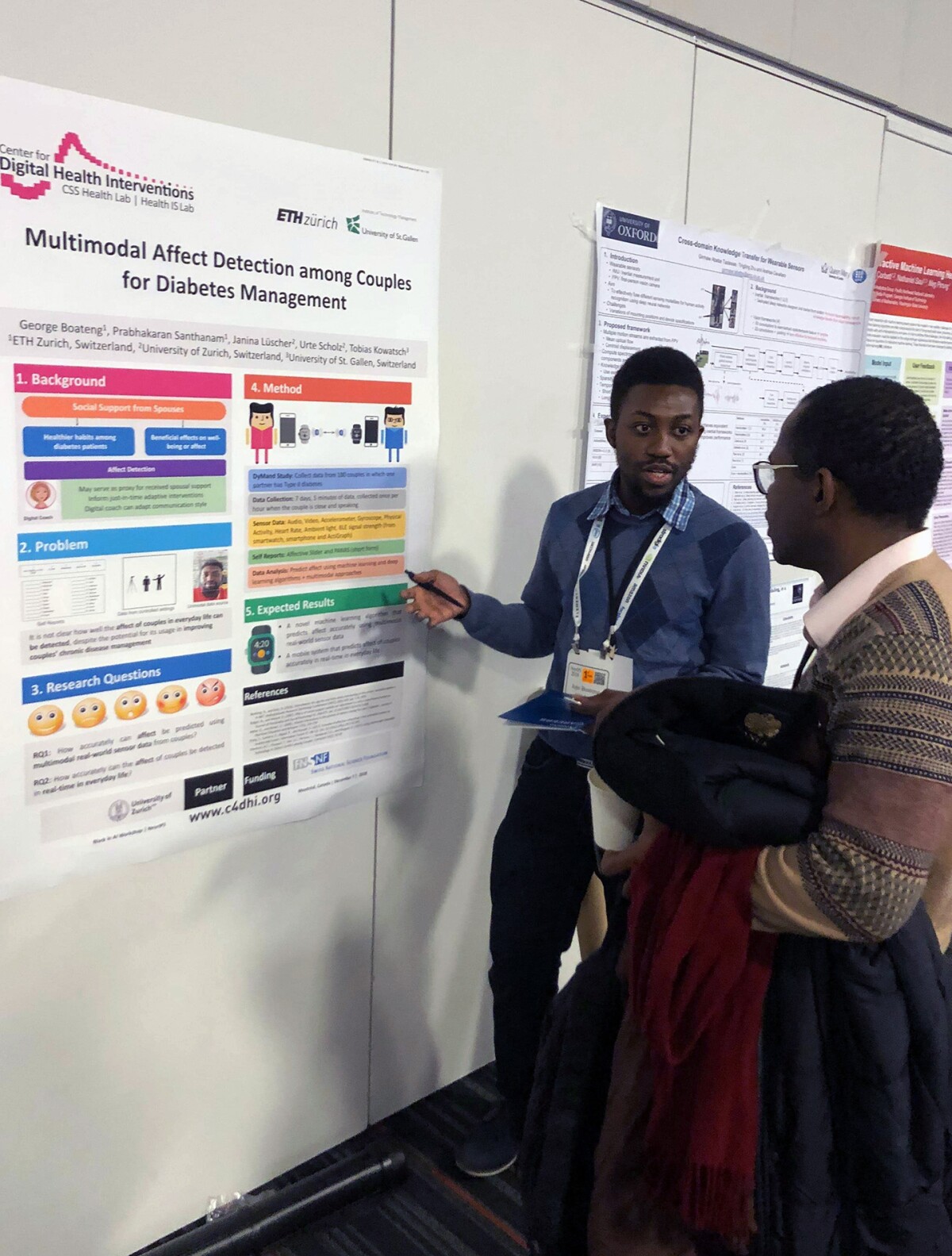In September of last year, Josh Miele, an Amazon principal accessibility researcher, got a text from someone at the MacArthur Foundation requesting a phone call, his heart leapt. For anyone in the arts and sciences, a MacArthur Fellowship, known as the “genius” grant, is akin to winning the lottery. You can’t apply for the $625,000 fellowship; it just arrives, mysteriously, out of the ether with a phone call from the foundation.

Josh Miele, an Amazon principal accessibility researcher, was selected a 2021 MacArthur Foundation Fellow. He has spent his career developing tools to make the world more accessible for people who are blind and visually impaired. Meg Coyle / AmazonFor Miele, who is blind and has spent his career developing tools to make the world more accessible for people who are blind and visually impaired, a MacArthur grant had long been a fantastical dream.
Yet given his life’s work, the grant was a surprise to no one who knows Miele. After graduating from the University of California, Berkeley with a PhD in psychoacoustics in 2003, Miele worked for 16 years at the non-profit Smith-Kettlewell Eye Research Institute in San Francisco as a principal scientist and researcher.
Learn what he's doing at Amazon to foster accessibility for the blind and visually impaired.
About 16 years ago, Sergey Menis, now a senior startup solution architect with AWS, was volunteering at a protein design lab during the day and parking cars at night. He'd come to the Baker Lab in Seattle on a whim. While earning his master's degree in bioinformatics at Chalmers University of Technology in Sweden, he read a 2003 paper describing the lab's work designing a novel protein that didn't exist in nature.

Sergey Menis said when he read about David Baker's work in inventing a protein molecule from scratch, the next chapter of his career — computational protein design — began to unfold. Courtesy of Sergey Menis"I was just in awe of that power," Menis recalled. He wanted to learn more about biochemist David Baker's work and emailed asking to join the lab, which is based at the University of Washington. Once there, he opted to work with Bill Schief, a postdoctoral researcher with Baker who was just starting his own lab.
Schief and his team, along with Menis, developed a breakthrough approach to a vaccine for HIV. In February 2021, the nonprofit scientific research organizations IAVI and Scripps Research announced exciting results in a phase 1 clinical trial — called IAVI G001 — of the Schief lab's vaccine candidate.
Earlier this year, building on those results, IAVI and Moderna announced that first doses had been administered in a new clinical trial of the experimental HIV vaccine.
Learn about the role Menis played in helping bring the world closer to a human immunodeficiency virus vaccine.
SuaCode, cofounded by piloted by former Alexa AI intern George Boateng, teaches young students in Africa to code using Android devices and a bilingual (English and French) AI-powered teaching assistant, Kwame, named after Ghana’s first president, Kwame Nkrumah.

George Boateng presenting his PhD research at the second Black in AI workshop at NeurIPS 2018 in Montréal, Canada. George BoatengTo date, SuaCode has introduced more than 2,000 learners from 42 African countries to the fundamentals of software. Boateng and his team are currently developing additional courses and partnering with universities across Africa to host and deliver programming through the SuaCode platform.
While at Amazon, Boateng and his colleagues developed a taxonomy of incongruity and expression in sarcastic utterances and performed systematic error analysis towards the goal of sarcasm detection. A paper is currently in the works.
“We didn’t completely solve sarcasm detection,” Boateng wrote on LinkedIn. “But we have taken a giant step towards that goal.”
Learn what else Boateng worked on in his Amazon internship and what inspires him to see solutions in scenarios where many people see problems.
In a world of ideal sustainability, every customer order received by Amazon that required a box would ship in a box tailored precisely to the size of its contents to minimize cardboard waste. But with an ever-changing catalogue of hundreds of millions of items and multiple items often shipped in a shared box, this dream scenario would require a near-infinite range of box sizes standing ready at Amazon’s fulfillment centers (FCs).

By the end of 2022, about 90% of all boxes shipped by Amazon will be sent from an optimized box suite, thanks to implementation of the pioneering web-based PackOpt tool. “This problem belongs to a theoretical class of problems called ‘NP hard’: essentially, no one knows if there's a really efficient algorithm to solve them,” said Renan Garcia, a principal research scientist. The solution? A pioneering web-based tool called PackOpt.
By the end of this year, about 90% of all boxes shipped by Amazon will be sent from an optimized box suite. In North America, PackOpt technology has resulted in an annual reduction in cardboard waste of 7% to 10%, saving roughly 60,000 tons of cardboard annually. In emerging countries such as Singapore, PackOpt has delivered more than double that percentage efficiency.
Learn about the science behind PackOpt and how it's helping Amazon deliver on its Climate Pledge commitment.
On Dec. 11, the Orion spacecraft splashed down in the Pacific Ocean, after traveling more than 1.4 million miles around the Moon and returning safely to Earth. NASA administrator Bill Nelson noted the splashdown "occurred 50 years to the day of the Apollo 17 Moon landing." Aboard Orion — the first human-rated spacecraft to visit the moon in more than 40 years — was an Echo device.

NASA’s Space Launch System rocket carrying the Orion spacecraft launches on the Artemis I flight test, Wednesday, Nov. 16, 2022, from Launch Complex 39B at NASA’s Kennedy Space Center in Florida. NASA/Joel KowskySetting up an Echo device on Earth is simple: all you need is a Wi-Fi connection and the Alexa app. However, things are far more complicated in space. For example, one challenge stemmed from the lack of humans on board. For Orion, commands to Alexa have to be sent from ground control. The low-bandwidth connections utilized for the transmission can make it challenging to transmit voices at the wide range of frequencies essential for differentiating between sounds.
Learn how scientists and engineers overcame that challenge (and several others) to get Alexa to work in space.
- Research areas
- Research areas
- News & blog
- The latest from Amazon researchers
- The latest from Amazon researchers
- Amazon Research Awards
- Research collaborations
- Overview
- Carnegie Mellon University
- Columbia University
- Hampton University
- Howard University
- IIT Bombay
- Johns Hopkins University
- Max Planck Society
- MIT
- Tennessee State University
- University of California, Los Angeles
- University of Illinois Urbana-Champaign
- University of Southern California
- University of Texas at Austin
- Virginia Tech
- University of Washington
- Amazon Research Awards
- Research collaborations
- Overview
- Carnegie Mellon University
- Columbia University
- Hampton University
- Howard University
- IIT Bombay
- Johns Hopkins University
- Max Planck Society
- MIT
- Tennessee State University
- University of California, Los Angeles
- University of Illinois Urbana-Champaign
- University of Southern California
- University of Texas at Austin
- Virginia Tech
- University of Washington






















